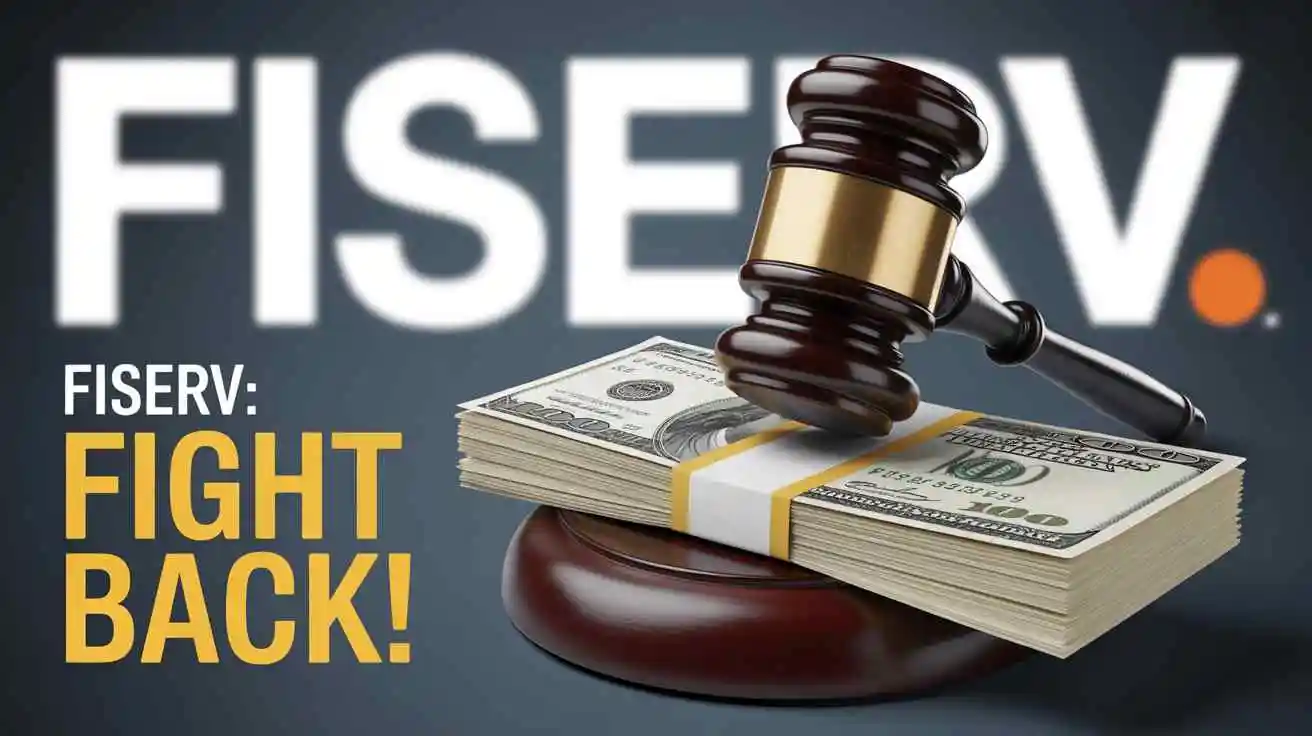Introduction to the Fiserv Class Action Lawsuit

In the ever-evolving landscape of corporate governance, the Fiserv Class Action Lawsuit serves as a critical case study for investors and stakeholders alike. This legal action highlights the importance of transparency and robust governance practices in mitigating risks associated with securities litigation.
As companies navigate complex regulatory environments, understanding the implications of governance failures becomes paramount. This article addrress the complexities of the Fiserv lawsuit, the principles of corporate governance, and the steps investors can take to protect their interests.
Understanding Securities Fraud Class Action Lawsuits
Securities fraud class action lawsuits represent a significant legal mechanism for investors who have suffered financial losses due to corporate malfeasance. These lawsuits, such as the Fiserv lawsuit, typically arise when a company or its executives engage in deceptive practices that mislead investors about the company’s financial health or prospect.
The goal of such litigation is to hold the perpetrators accountable and secure compensation for the affected investors. Securities fraud encompasses a range of activities, including insider trading, false financial statements, and misleading disclosures, all of which can severely impact market integrity and investor confidence.
In a class action context, a group of investors collectively brings the lawsuit against the defendant, which could be a corporation or its executives. This collective approach is particularly powerful in the securities realm because it allows individual investors, who might not have the resources to pursue litigation on their own, to band together and seek justice.
The class action mechanism ensures that the legal process is efficient and that the interests of all affected investors are represented.
The complexity of securities fraud class action lawsuits requires plaintiffs to navigate a labyrinth of legal standards and procedural hurdles. One of the most significant challenges is surviving a motion to dismiss, a legal maneuver by the defendants to have the case thrown out before it reaches trial.
Understanding the nuances of the Fiserv lawsuit is crucial for any stakeholder involved, as it sets the stage for the strategic decisions that will follow. In the case of the Fiserv lawsuit class action lawsuit, these elements come into sharp focus, highlighting the importance of a well-crafted legal strategy.

Understanding the Fiserv Class Action Lawsuit
The Fiserv class action lawsuit, officially titled City of Hollywood Police Officers’ Retirement System v. Fiserv, Inc., is a significant legal proceeding that seeks to represent individuals who purchased Fiserv, Inc. (NYSE: FI) common stock during a specified period.
The lawsuit alleges that Fiserv and certain executives engaged in deceptive practices that misled investors regarding the company’s financial health. This case underscores the critical need for transparency in corporate communications and the potential consequences of governance failures.
Background of the Lawsuit
The lawsuit was initiated by investors who claimed that Fiserv provided misleading information about its financial performance, particularly regarding its growth metrics. The class period spans from July 24, 2024, to July 22, 2025, during which the company allegedly made false statements and failed to disclose crucial information that could have impacted investor decisions. As a result, many shareholders experienced significant financial losses.
Allegations Against Fiserv
The core allegations in the Fiserv class action lawsuit revolve around the company’s failure to accurately report its growth metrics. Specifically, the lawsuit claims that Fiserv misrepresented its Clover GPV (Gross Payment Volume) growth, which saw a notable decline from previous years. This misrepresentation led to a sharp decline in the stock price, causing substantial losses for investors.
Legal Framework
The Fiserv class action lawsuit is grounded in the Securities Exchange Act of 1934, which governs the trading of securities in the United States. Under this act, companies are required to provide accurate and timely information to investors. The Fiserv lawsuit highlights the legal ramifications of failing to adhere to these regulations, emphasizing the importance of corporate accountability.
The Role of Corporate Governance
Corporate governance refers to the systems, principles, and processes by which companies are directed and controlled. It encompasses the relationships among various stakeholders, including shareholders, management, and the board of directors. Effective governance is essential for fostering trust and ensuring that companies operate transparently and ethically.
Key Principles of Corporate Governance
- Accountability: Leaders within the organization must be held accountable for their actions and decisions. This principle fosters a culture of responsibility and ethical behavior.
- Transparency: Open communication regarding financial performance and decision-making processes is vital. Transparency builds trust among stakeholders and enhances the company’s reputation.
- Fairness: All stakeholders should be treated equitably, with their rights respected. This principle is crucial for maintaining positive relationships between the company and its stakeholders.
- Responsibility: The board of directors and management must act in the best interests of the company and its stakeholders, ensuring compliance with laws and regulations.
- Risk Management: Identifying and managing risks is a fundamental aspect of corporate governance. Effective risk management practices help prevent potential crises and safeguard the company’s assets.
The Importance of a Strong Board of Directors
The board of directors plays a pivotal role in corporate governance. This governing body is responsible for overseeing the company’s activities, setting strategic objectives, and ensuring that management acts in the best interests of shareholders. A well-composed board, featuring a mix of inside and independent directors, is essential for providing unbiased perspectives and effective oversight.
Implications of the Fiserv Class Action Lawsuit
The Fiserv class action lawsuit serves as a cautionary tale for companies regarding the importance of robust corporate governance practices. The implications of this lawsuit extend beyond Fiserv itself, offering valuable lessons for other organizations.
Financial Consequences
Companies facing securities litigation often experience significant financial repercussions. Legal fees, potential settlements, and reputational damage can severely impact a company’s bottom line. For Fiserv, the decline in stock price following the allegations illustrates the direct financial consequences of governance failures.
Reputational Damage
In addition to financial losses, companies embroiled in class action lawsuits face reputational harm. Stakeholders may lose confidence in the company’s leadership and its ability to operate ethically. Rebuilding trust can be a lengthy and challenging process, making it essential for organizations to prioritize transparency and accountability.

Regulatory Scrutiny
Securities litigation often attracts the attention of regulatory bodies, leading to increased scrutiny of a company’s practices. This heightened oversight can result in additional compliance requirements and potential penalties, further complicating the company’s operations.
Best Practices for Avoiding Securities Litigation
To mitigate the risks associated with securities litigation, companies must adopt best practices in corporate governance. By prioritizing transparency and accountability, organizations can protect themselves from potential legal challenges.
Establishing Clear Roles and Responsibilities
Clearly defining the roles and responsibilities of the board, management, and other stakeholders is crucial. This clarity helps prevent conflicts of interest and ensures accountability throughout the organization.
Implementing a Robust Code of Conduct
A comprehensive code of conduct promotes ethical behavior within the organization. This code should outline expectations for all employees and management, emphasizing the importance of integrity and compliance with laws and regulations.
Ensuring Accurate Financial Reporting
Accurate and transparent financial reporting is vital for maintaining investor confidence. Companies should adhere to relevant accounting standards and conduct regular audits to ensure the reliability of financial information.
Engaging with Stakeholders
Fostering open communication with stakeholders is essential for effective corporate governance. Organizations should actively seek feedback and address concerns to build trust and strengthen relationships.
The Role of Legal Counsel in Securities Litigation
In the context of securities litigation, legal counsel plays a critical role in guiding companies through the complexities of the legal process. Engaging experienced attorneys can help organizations navigate the challenges associated with class action lawsuits.
Legal Representation
Having skilled legal representation is essential for companies facing securities litigation. Attorneys can provide valuable insights into the legal landscape, helping organizations develop effective strategies for responding to allegations.
Compliance Guidance
Legal counsel can assist companies in establishing robust compliance programs that align with regulatory requirements. By promoting ethical behavior and accountability, organizations can reduce the risk of litigation.
Crisis Management
In the event of a class action lawsuit, legal counsel can help companies manage the crisis effectively. This includes developing communication strategies, addressing stakeholder concerns, and mitigating reputational damage.
The Future of Corporate Governance
As the business landscape continues to evolve, the importance of effective corporate governance will only grow. Companies must remain vigilant in their efforts to prioritize transparency and accountability to avoid the pitfalls of securities litigation.
Embracing Technological Advancements
The integration of technology into corporate governance practices can enhance transparency and efficiency. Companies can leverage data analytics and reporting tools to provide stakeholders with real-time insights into their operations.
Adapting to Regulatory Changes
Staying informed about regulatory changes is crucial for companies seeking to maintain compliance. Organizations must be proactive in adapting their governance practices to align with evolving legal requirements.
Fostering a Culture of Integrity
Ultimately, fostering a culture of integrity within the organization is essential for effective corporate governance. By prioritizing ethical behavior and accountability, companies can build trust with stakeholders and mitigate the risks associated with securities litigation.
Conclusion
The Fiserv class action lawsuit serves as a stark reminder of the importance of transparency and robust corporate governance practices in today’s corporate landscape. By understanding the implications of governance failures and adopting best practices, companies can protect themselves from the risks associated with securities litigation. As stakeholders, investors, and organizations navigate this complex environment, prioritizing accountability and ethical behavior will be essential for long-term success.
If you have experienced financial losses related to the Fiserv class action lawsuit or have questions about your rights as a shareholder, it is crucial to seek legal counsel. Engaging with experienced attorneys can provide valuable guidance and support as you navigate the complexities of securities litigation.
Rights of Investors in Securities Litigation
Investors affected by the Fiserv class action lawsuit possess specific rights that they can exercise. Understanding these rights is vital for anyone considering involvement in the lawsuit.
Right to Information
Investors have the right to receive accurate and timely updates regarding the Fiserv lawsuit . This includes information on the case’s progress, potential settlements, and any necessary actions they may need to undertake.
Right to Participate
Affected investors have the right to join the Fiserv class action lawsuit. This allows them to collaborate with other investors in seeking compensation for their losses without the burden of filing individual lawsuits.

Right to Legal Representation
Investors can seek legal counsel to navigate the complexities of the Fiserv class action lawsuit. Legal professionals can provide guidance and support throughout the process.
If you suffered substantial losses and wish to serve as lead plaintiff of the Fiserv class action lawsuit, or just have general questions about you rights as a shareholder, please contact attorney Timothy L. Miles of the Law Offices of Timothy L. Miles, at no cost, by calling 855/846-6529 or via e-mail at [email protected].
Options for Investors
Investors facing losses due to the Fiserv class action lawsuit have several options available to them. Each option carries its own implications and potential outcomes.
Joining the Fiserv Class Action Lawsuit
One of the most straightforward options for investors is to join the Fiserv class action lawsuit. By doing so, they can collectively pursue compensation for their losses without the need for individual litigation.
Filing an Individual Claim
In certain situations, investors may opt to file individual claims instead of joining the Fiserv lawsuit . This option may be appropriate for those who believe their losses are significant enough to warrant separate legal action.
Seeking Legal Advice
Consulting with a legal professional experienced in securities law can provide investors with insights into their best course of action. Legal experts can help assess the merits of individual claims versus joining the class action.
The Role of Law Firms
Law firms play a crucial role in the Fiserv class action lawsuit. They provide the necessary legal experience and representation for investors seeking to recover their losses.
Selecting a Law Firm for the Fiserv Lawsuit
Investors have the option to choose a law firm that practices securities fraud cases. A reputable firm can offer valuable insights and increase the likelihood of a favorable outcome. If you suffered substantial losses and wish to serve as lead plaintiff of the Fiserv class action lawsuit, or just have general questions about you rights as a shareholder, please contact attorney Timothy L. Miles of the Law Offices of Timothy L. Miles, at no cost, by calling 855/846-6529 or via e-mail at [email protected].
Frequently Asked Questions About the Fiserv Lawsuit
What initiated the Fiserv class action lawsuit?
The lawsuit was initiated by investors alleging that Fiserv provided misleading information regarding its financial health and operations, resulting in financial losses.
How can I join the Fiserv lawsuit?
If you purchased shares during the class period and suffered a loss, then you are automatically a member of the class and do not need to do anything at this point unless you are considering moving for lead plaintiff.
What are the potential benefits of a Fiserv class action lawsui?
Class action lawsuits allow individual investors to collectively seek justice and compensation, which might be challenging to pursue individually. They also promote corporate accountability.
How long will the Fiserv lawsuit take to resolve?
The duration of class action lawsuits can vary significantly, depending on the complexity of the case, legal strategies, and whether settlements are reached. It could take several months to years.
Contact Timothy L. Miles Today About an Fiserv Class Action Lawsuit
If you suffered substantial losses and wish to serve as lead plaintiff of the Fiserv class action lawsuit,, or just have general questions about you rights as a shareholder, please contact attorney Timothy L. Miles of the Law Offices of Timothy L. Miles, at no cost, by calling 855/846-6529 or via e-mail at [email protected]. (24/7/365).
Timothy L. Miles, Esq.
Law Offices of Timothy L. Miles
Tapestry at Brentwood Town Center
300 Centerview Dr. #247
Mailbox #1091
Brentwood,TN 37027
Phone: (855) Tim-MLaw (855-846-6529)
Email: [email protected]
Website: www.classactionlawyertn.com
Facebook Linkedin Pinterest youtube



